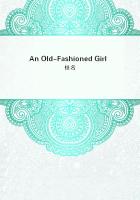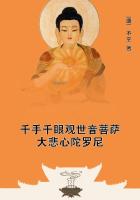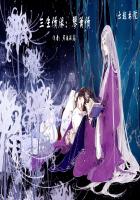"LUBAVKA!" said Mayakin one day when he came home from the Exchange, "prepare yourself for this evening. I am going to bring you a bridegroom! Prepare a nice hearty little lunch for us. Put out on the table as much of our old silverware as possible, also bring out the fruit-vases, so that he is impressed by our table!
Let him see that each and everything we have is a rarity!"Lubov was sitting by the window darning her father's socks, and her head was bent low over her work.
"What is all this for, papa?" she asked, dissatisfied and offended.
"Why, for sauce, for flavour. And then, it's in due order. For a girl is not a horse; you can't dispose of her without the harness."All aflush with offence, Lubov tossed her head nervously, and flinging her work aside, cast a glance at her father; and, taking up the socks again, she bent her head still lower over them. The old man paced the room to and fro, plucking at his fiery beard with anxiety; his eyes stared somewhere into the distance, and it was evident that he was all absorbed in some great complicated thought. The girl understood that he would not listen to her and would not care to comprehend how degrading his words were for her. Her romantic dreams of a husband-friend, an educated man, who would read with her wise books and help her to find herself in her confused desires, these dreams were stifled by her father's inflexible resolution to marry her to Smolin. They had been killed and had become decomposed, settling down as a bitter sediment in her soul. She had been accustomed to looking upon herself as better and higher than the average girl of the merchant class, than the empty and stupid girl who thinks of nothing but dresses, and who marries almost always according to the calculation of her parents, and but seldom in accordance with the free will of her heart. And now she herself is about to marry merely because it was time, and also because her father needed a son-in-law to succeed him in his business. And her father evidently thought that she, by herself, was hardly capable of attracting the attention of a man, and therefore adorned her with silver. Agitated, she worked nervously, pricked her fingers, broke needles, but maintained silence, being aware that whatever she should say would not reach her father's heart.
And the old man kept on pacing the room to and fro, now humming psalms softly, now impressively instructing his daughter how to behave with the bridegroom. And then he also counted something on his fingers, frowned and smiled.
"Mm! So! Try me, 0h Lord, and judge me. From the unjust and the false man, deliver me. Yes! Put on your mother's emeralds, Lubov.""Enough, papa!" exclaimed the girl, sadly. "Pray, leave that alone.""Don't you kick! Listen to what I'm telling you."And he was again absorbed in his calculations, snapping his green eyes and playing with his fingers in front of his face.
"That makes thirty-five percent. Mm! The fellow's a rogue. Send down thy light and thy truth.""Papa!" exclaimed Lubov, mournfully and with fright.
"What?"
"You--are you pleased with him?"
"With whom?
"Smolin."
"Smolin? Yes, he's a rogue, he's a clever fellow, a splendid merchant! Well, I'm off now. So be on your guard, arm yourself."When Lubov remained alone she flung her work aside and leaned against the back of her chair, closing her eyes tightly. Her hands firmly clasped together lay on her knees, and their fingers twitched. Filled with the bitterness of offended vanity, she felt an alarming fear of the future, and prayed in silence:
"My God! 0h Lord! If he were only a kind man! Make him kind, sincere. 0h Lord! A strange man comes, examines you, and takes you unto himself for years, if you please him! How disgraceful that is, how terrible. 0h Lord, my God! If I could only run away!
If I only had someone to advise me what to do! Who is he? How can I learn to know him? I cannot do anything! And I have thought, ah, how much I have thought! I have read. To what purpose have Iread? Why should I know that it is possible to live otherwise, so as I cannot live? And it may be that were it not for the books my life would be easier, ******r. How painful all this is! What a wretched, unfortunate being I am! Alone. If Taras at least were here."At the recollection of her brother she felt still more grieved, still more sorry for herself. She had written to Taras a long, exultant letter, in which she had spoken of her love for him, of her hope in him; imploring her brother to come as soon as possible to see his father, she had pictured to him plans of arranging to live together, assuring Taras that their father was extremely clever and understood everything; she told about his loneliness, had gone into ecstasy over his aptitude for life and had, at the same time, complained of his attitude toward her.
For two weeks she impatiently expected a reply, and when she had received and read it she burst out sobbing for joy and disenchantment. The answer was dry and short; in it Taras said that within a month he would be on the Volga on business and would not fail to call on his father, if the old man really had no objection to it. The letter was cold, like a block of ice;with tears in her eyes she perused it over and over again, rumpled it, creased it, but it did not turn warmer on this account, it only became wet. From the sheet of stiff note paper which was covered with writing in a large, firm hand, a wrinkled and suspiciously frowning face, thin and angular like that of her father, seemed to look at her.
On Yakov Tarasovich the letter of his son made a different impression. On learning the contents of Taras's reply the old man started and hastily turned to his daughter with animation and with a peculiar smile:















